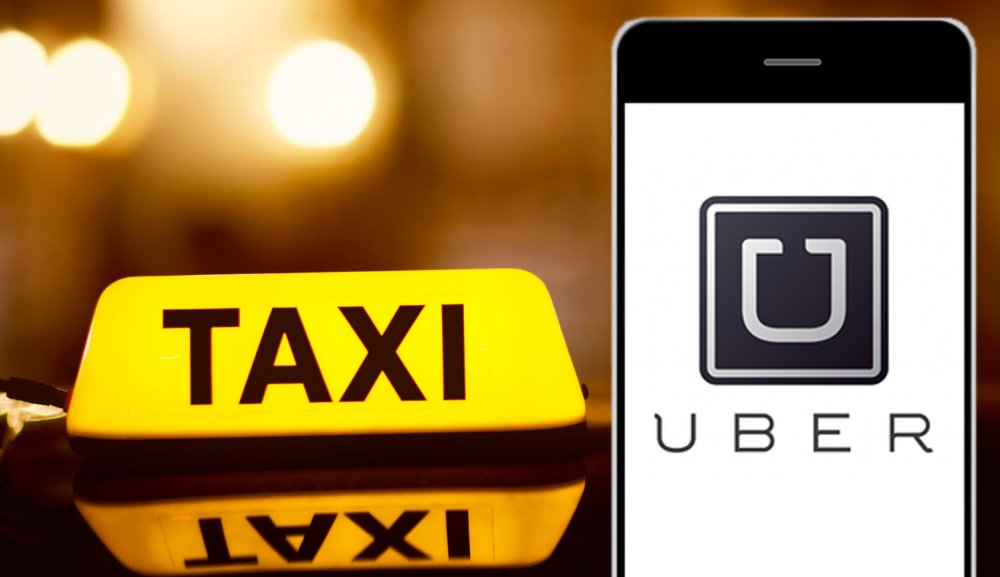Other Pages
- Opinion Poll
- About Us
- Send Your Story
- Contact Us
- Newsletter
- Privacy Policy
- Terms and Conditions

Uber's 2020 first quarter result has shown the ride-hailing company recorded a loss of $2.9 billion in three months. The loss shows how exposed Uber and other tech-driven app-based taxis were in the early stage of the Coronavirus outbreak and lockdown period.
While car-hailing companies have not been profitable, Uber has been well-positioned in US, Europe, Nigeria and other markets, capturing larger market shares, but the COVID-19 pandemic hit its revenue adversely, forcing Uber to cut thousands of jobs.
Uber tried to shield its revenue
But in order to shield the Uber group from being overwhelmed by the COVID-19 fallout, the Chief Executive, Dara Khosrowshahi, said the company focused its strength on other subsidiaries like Uber Eats, which continued to operate while the ride-hailing segment was shut down by a restriction on movement. Uber Eats grow 54% year-over-year according to the statement seen by Allnews.
Allnews had reported that in Nigeria, President Muhammadu Buhari ordered a lockdown in March, which was dragged into May. The same lockdown directive was issued by other world leaders in Ride-hailing's key markets.
But the strategy to put Uber Eats in the front seat didn't prevent Uber from downsizing like other companies in various sectors. Uber, having been "hit hard", sacked 3,700 employees, as the decline in bookings for rides was heavily noticed.
What Uber CEO said about Uber's result
Reflecting on the impact of COVID-19 on Uber, Khosrowshahi said, "While our rides business has been hit hard by the ongoing pandemic, we have taken quick action to preserve the strength of our balance sheet, focus additional resources on Uber Eats, and prepare us for any recovery scenario.
“Along with the surge in food delivery, we are encouraged by the early signs we are seeing in markets that are beginning to open back up. Our global footprint and highly variable cost structure remain an important advantage, as our expectation is that the Rides recovery will vary by city and country.”
The CFO of Uber, Nelson Chai, said, “Our ample liquidity provides us with substantial flexibility to navigate the current crisis, but we are being proactive and taking actions to emerge stronger and more focused as a company,”
Light at the end of tunnel for Uber
With countries gradually easing their lockdown, allowing for movements, Khosrowshahi is optimistic that Uber will bounce back. The lifting of lockdown is expected to cause a hike in ride bookings.
Already, Uber says it has been seeing booking recovery for about a week as some States begin to reopen in US. But that light might remain dim in Nigeria where businesses haven't resumed fully and households income have dropped due to job loss and price inflation.
Booking/ride demand low in Nigeria
Speaking to some Uber drivers in Nigeria, Allnews learnt that booking is still low as fear of Coronvirus keeps people at home.
An Uber driver, Oluwasesan Emmanuel, who spoke to Allnews said he has not been working, but his colleagues have informed him that ride bookings have been low since May 4 when Nigeria eased its lockdown.
Emmanuel said the booking "has been very poor." He explained that one of the drivers he knows made about N3000, but bought fuel of N2000. This means booking has declined to about two trips daily. Before COVID-19, Uber drivers usually make an average of N15,000. But according to Uber's 2020 Q1 result, rides dropped by 3%.
Another app-based driver, Olayinka Rafiu, complained of the demand for Uber, stating that on Thursday, May 7, he only recorded one booking, the same market that use to provide about twenty daily bookings. But with some businesses still shut and others still operating the work-from-home program, demands for business trips and personal rides will remain low.
Aside from the low demand by riders, the curfew has also not helped ride-hailing firms that much. In Nigeria, movement is only allowed between 6-am and 8-pm. This pushed demand even lower.
Availability of Uber services also affected
The low demand for ride-hailing services has made both Emmanuel and Rafiu to work off and on. Revealing why he hasn't returned to the Uber gig, Emmanuel said the lifting of the lockdown is still early, as he plans to resume next week.
He said the low demand for ride-hailing services has not been encouraging either. If the demand remains low and the curfew continues, the number of ride-hailing services in operation within Nigeria might drop even further.
0 Comment(s)